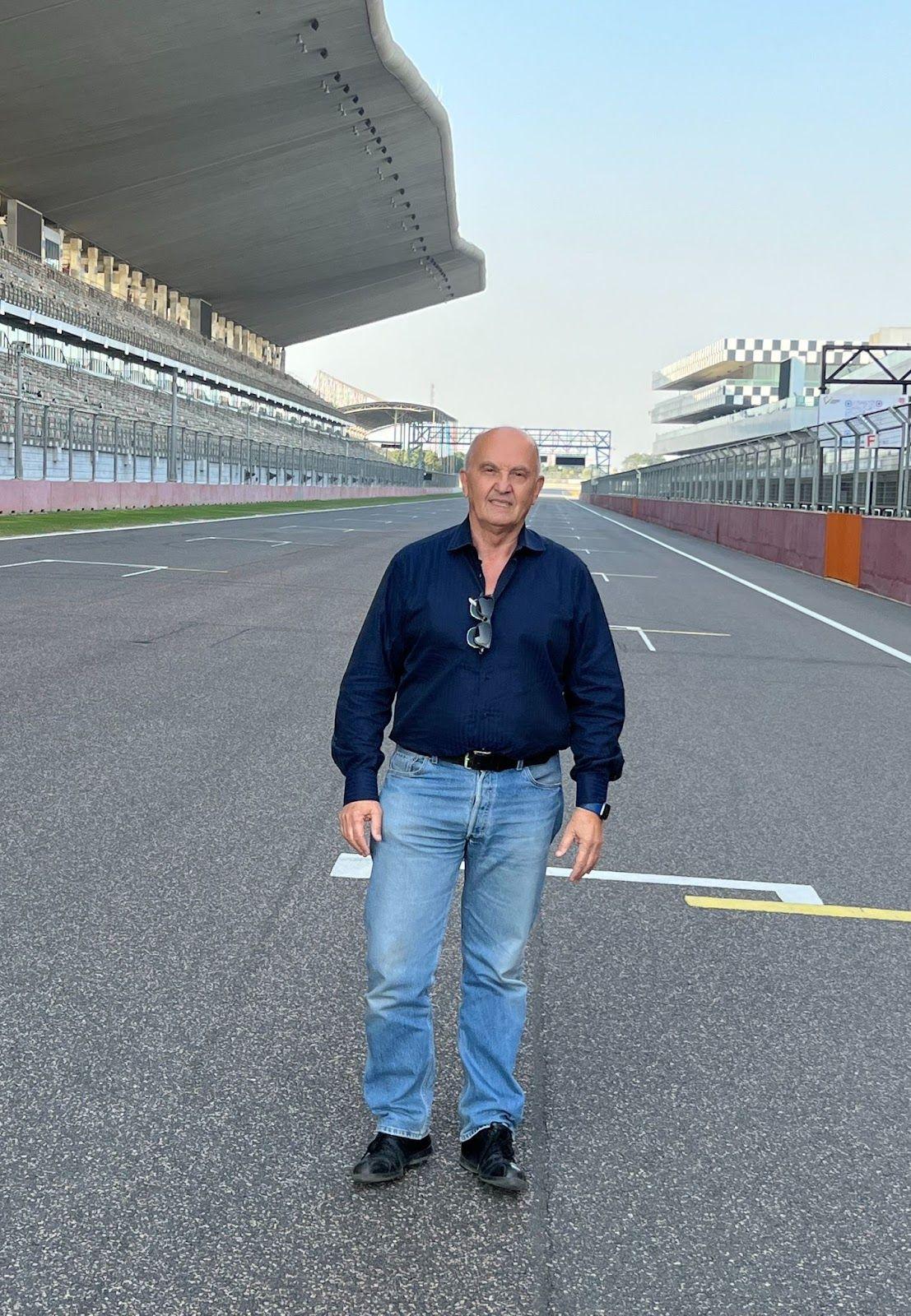
The world is on the cusp of one of the most significant shifts in investing power in history. Over the next two decades, households in the US alone are expected to pass down around $73 trillion to the younger generations, which is the equivalent of three years’ worth of US GDP, according to asset management consultancy Cerulli. High and ultra-net-worth households are estimated to account for more than 40% of the redistributed wealth.¹
This massive transfer will have far-reaching implications for millions of families, businesses and individuals. For example, millennials, who are born between 1981 and 1996, will go from controlling just 3% of global wealth to around 60%², transforming the cohort into the dominant investing force.
Older people don’t necessarily invest the same way as younger ones
This shift in wealth will be even more consequential given the potentially opposed investment preferences and goals across generations. The primary goal of baby boomers — people born in the years after the second World War who are now overwhelmingly passing down the capital — is to ensure their wealth is preserved, typically with as little risk as possible. This is understandable: Boomers were mostly focused on retirement planning, while the aspirations of their heirs tend to revolve around careers, personal development and family.
The capacity for long-term investing, coupled with a higher tolerance for risk, is reflected in how younger cohorts construct their portfolios. For example, they are more likely to shun traditional investments. Only 25% of millennials believe stocks and bonds guarantee above-average returns versus 68% of those aged 43 and older, according to the Bank of America’s 2022 survey of participants with household investable assets of over $3 million. To find better returns, rich millennials are turning to alternatives; they are three times more likely to embrace non-traditional investments compared to their parents or grandparents. They consider cryptocurrencies, real estate and private equity as especially attractive.³
To an extent, contrasting expectations around investing also stem from what values generations regard as more important. For example, studies show that younger wealth holders are more eager to pursue environmental and social objectives — even at the cost of losing better returns. An average millennial investor is prepared to give up to 10% of their investments to see companies improve their environmental practices, found a survey by Stanford University, which polled 2,470 investors with savings ranging from less than $10,000 to more than $500,000. On the other hand, an average baby boomer was willing to sacrifice only a trivial amount or nothing at all in the advancement of environmental objectives.⁴
Wealth transfer is transforming family offices
As families become more focused on newer asset classes or more impact-focused investments, many asset managers will need to rethink their investment strategies. Indeed, some family offices are already adjusting; according to a Credit Suisse survey, nearly 30% of respondents said their investment strategy would ‘change significantly to align with the values and risk appetite of the next generation’. To better accommodate incoming investors, family offices have also started adding private assets to their portfolios, our recent survey has shown. Read the full report here.
Families are critically underprepared
Despite the unprecedented shift in wealth and its expected implications, many households are heading toward this transfer without any concrete plan or direction. This is true even among the most affluent. Around 40% of investors who own more than $1 million in assets have not formalized an inheritance plan, according to a recent UBS survey.⁵
Without a proper strategy and oversight, money that has been passed down the family line can evaporate relatively quickly. Wealth consultancy The Williams Group found that a staggering 70% of generational wealth doesn’t make it past the second generation, and 90% disappears by the third.⁶ It clearly takes more than money to build a financial legacy — let alone build one that keeps accumulating.

How to prepare for a wealth transfer: four things to keep in mind
Navigating a wealth transfer can be a high-stake topic, which only reinforces the importance of proper legacy planning. This can take different forms, depending on goals, size of wealth, risk appetite and investment philosophy. Many families manage and distribute wealth by using legal instruments including wills and trusts or they employ family office managers that institutionalise the wealth of (affluent) families. For a successful wealth transfer, four areas are especially essential:
Invest early and as much as possible
One of the critical steps to preserving and building generational wealth is to invest as early and as much as possible. A diversified portfolio across asset classes and risk-return profiles is often the most effective bulwark against inflation and economic turbulence. However, not many families deploy the necessary strategies to combat the erosion of wealth that happens over time. For example, more than four-fifths of parents in the UK who are saving money for their children are doing so exclusively in cash rather than investing, a 2021 study has found.⁷
Most assets have their place in a well-constructed portfolio. But it seems that some are still favoured among those families who have the largest means for building generational wealth. A 2022 survey among members of Tiger 21 club – a peer network for the HNWIs and family offices – found that private equity and stocks are preferred investments, ahead of real estate.⁸ Private equity tends to appreciate over time and has generated attractive returns in the past.⁹ In addition, with a longer time horizon and a more illiquid profile, these investments provide an opportunity to take prudent risks, while avoiding the daily volatility of stock markets. Learn more about the intricacies of private equity in our PE Masterclass series.
Be transparent
Inheritance is an emotional topic and conflicts can easily occur. Transparency on all levels is therefore critical to avoid intergenerational friction. It’s also something that many people want their wealth advisors to facilitate. According to Roland Berger’s survey, nearly 70% of HNWIs, for example, seek more clarity specifically on the details of wealth transfer.¹⁰
Regular family meetings and an open dialogue across all stakeholders are essential to avoid miscommunication and foster prudent governance. Conversations should include the scope, aims and responsibilities of wealth ownership but also stretch beyond purely financial considerations. In this process, an outside expert can help steer the conversation towards an agreement while making sure all the stakeholders are involved and feel heard.
Educate thoroughly, but don’t force it
To become prudent stewards of their family’s wealth, heirs need to acquire a proper degree of financial knowledge. But according to wealth managers at RBC, this structured financial learning is often inadequate and begins quite late, typically starting in heirs’ late twenties.¹¹
Educational practices range widely, still, they need to be tailored to the age, experience and interests of the family members. Along with relevant degrees and certificates, there are also many non-degree programs and opportunities focused specifically on family wealth management that you can explore.
Stay on top of legal considerations
Finally, there is no substitute for having legal documents that clearly spell out the who, what, where, when and how’s. Accessing highly qualified legal advice and detailed tax implications is even more crucial in a globalised world with cross-border exposure to different legal and tax regimes. As Robert Paul, who is heading US Family Office business at London & Capital, pointed out in a conversation with Moonfare: “You can have the best investments in the world, but if you don’t think about it with regard to how the currency, tax and reporting inlay, it is irrelevant.”
Implementing (cross-border) strategies to mitigate your current and long-term tax bills can therefore greatly help with wealth accumulation. According to Cerulli, grantor trusts are far and away the most common way to increase the tax efficiency of wealth transfer among high-net-worth individuals, followed by spousal lifetime access trusts and strategic gifting.¹²
Moonfare investor Boris Lazaric on wealth transfer
“We are a tight-knit family, but having a will is still important”

Boris Lazaric (73) is a construction professional, who has spent decades managing large infrastructure projects such as building power plants, bridges and even Formula One circuits. And just as infrastructure needs to be designed to endure, so has Lazaric managed his capital with long-term goals in mind.
“Being a family man, I knew forty years ago that whatever will remain behind me will go to my children and grandchildren,” Lazaric, who comes from Croatia, told us in an interview. He has two children, both living in London, with careers in economics and investment banking.
Lazaric maintains a well-diversified portfolio, with a special focus on real estate, private equity and some public assets. Around two-thirds of his wealth comes from owning property, while his children, given their financial backgrounds, often advise Lazaric on equity investments. “For example, they’ve recommended Moonfare as the platform that offers exposure to private equity for individual investors,” he said, and further explained that he made private investments in the past and was satisfied with the returns. “But you have to be realistic and not get greedy.”
After decades of generating wealth, Lazaric’s attention is now shifting to wealth transfer planning, which includes a will that he drafted with his wife. “The will is the basis because you never know what might happen. Although we are a tight-knit family, it’s important to put things down in writing to avoid any potential problems,” he told us. It’s also not a secret how he intends to split the wealth. “I’ll equally distribute it between children, both in terms of value and location when it comes to property.”
Already being sophisticated investors, he trusts his children will be prudent stewards of family wealth. There is one “condition” though. “I would like that part of the money goes to grandchildren for their education. I’m a strong believer in education as I have sacrificed to put my kids in the best schools in Europe — and it paid off. Education is the basis for everything,” Lazaric highlighted.

Endnotes:
¹ https://www.cerulli.com/press-releases/cerulli-anticipates-84-trillion-in-wealth-transfers-through-2045 ² https://www.entrepreneur.com/money-finance/3-ways-to-prepare-yourself-for-the-great-wealth-transfer/434715 ³ https://ustrustaem.fs.ml.com/content/dam/ust/articles/pdf/2022-BofaA-Private-Bank-Study-of-Wealthy-Americans.pdf ⁴ https://www.gsb.stanford.edu/sites/default/files/publication/pdfs/cgri-closer-look-98-esg-investing.pdf ⁵ https://www.ubs.com/global/en/media/display-page-ndp/en-20221019-investor-watch.html ⁶ https://www.nasdaq.com/articles/generational-wealth%3A-why-do-70-of-families-lose-their-wealth-in-the-2nd-generation-2018-10 ⁷ https://www.belfasttelegraph.co.uk/business/uk-world/around-four-in-five-parents-saving-for-children-doing-so-exclusively-in-cash-40642783.html ⁸ https://ftwinvestmentsllc.com/stocks-come-in-third-place-with-the-wealthy/ ⁹ https://caia.org/blog/2022/07/20/long-term-private-equity-performance-2000-2021 ¹⁰ https://www.rolandberger.com/en/Insights/Publications/How-wealth-managers-need-to-adapt-to-their-new-reality.html ¹¹ https://www.rbcwealthmanagement.com/_assets/documents/RBC-wealth-transfer-report-2017.pdf ¹² https://www.cerulli.com/press-releases/cerulli-anticipates-84-trillion-in-wealth-transfers-through-2045



